This article was medically reviewed by Luba Lee, FNP-BC, MS. Luba Lee, FNP-BC is a Board-Certified Family Nurse Practitioner (FNP) and educator in Tennessee with over a decade of clinical experience. Luba has certifications in Pediatric Advanced Life Support (PALS), Emergency Medicine, Advanced Cardiac Life Support (ACLS), Team Building, and Critical Care Nursing. She received her Master of Science in Nursing (MSN) from the University of Tennessee in 2006.
There are 37 references cited in this article, which can be found at the bottom of the page.
This article has been viewed 42,804 times.
Strep throat, a common bacterial infection, often comes with several painful symptoms: a sore throat, fever, headache, painful swallowing, red and swollen tonsils, and hoarseness when speaking.[1] Though strep throat requires a medical diagnosis, there are several ways you can start to treat the painful symptoms immediately and without a prescription. Many natural remedies that you can drink or gargle exist, and over-the-counter medicines to treat pain are readily available. By combining these methods and working to increase moisture in your environment, you can treat the pain that comes with a case of strep throat.
Steps
Using Natural Remedies
-
1Gargle a mixture made of .5 teaspoons (2.5 mL) salt and 1 cup (240 mL) of water. Saltwater helps to reduce inflammation,[2] and gargling a mouthful of it for approximately 30 seconds can lessen the irritation of a sore throat for an hour or two.[3]
- Make sure you don’t swallow the saltwater! When you’re done gargling, spit it out into a sink.
- Young children are unlikely to be able to gargle, so try other methods for pain control with them.
-
2Drink 1 cup (240 mL) of warm water with 2 tablespoons (30 mL) of honey. Stir the honey into the water until it has mostly dissolved. The water should be hot, but not painfully so, like a cup of tea. Honey has natural antibacterial and anti-inflammatory properties and acts as a great cough suppressant, so it works very well to soothe many of the pains that come with strep throat. [4]Advertisement
-
3Stir 1 teaspoon (4.9 mL) of lemon juice into 1 cup (240 mL) of warm water. Drink this mixture several times throughout the day as you find necessary to treat the pain. Lemon juice helps to break up mucus and can boost the immune system, providing pain relief and fighting off infection at the same time.[7] [8]
-
4Consume different types of tea to treat a variety of symptoms. There are many different teas that can be used as natural remedies to strep throat pain, so it is mostly up to you and your taste preferences to choose exactly which one to drink.[9]
- Chamomile is probably the most famous tea for treating sore throats, and for good reason! It has antibacterial and anti-inflammatory properties.[10] Plus, it acts as a natural lubricant, providing relief if you have difficulty speaking or swallowing.[11]
- Green tea can help soothe your throat by reducing inflammation as well.[12]
- Peppermint tea naturally can slightly numb your throat, reducing pain.[13]
-
5Eat foods that are easy to swallow and avoid spicy or acidic ones. Soft foods like soups, applesauce, oatmeal, mashed potatoes, soft fruits, and soft-cooked eggs will be much easier to eat than hard foods that can irritate your sensitive throat. Cold foods, like ice cream or frozen fruit, may also be soothing.[14]
-
6Get plenty of rest so your body can fight infection. Sleep is necessary for your body's immune system to work properly. Make sure to get the 8 hours of recommended sleep per night. During the day, abstain from normal activity that wears you out, such as exercise or work.[15]
- While you are infectious and feeling the symptoms of strep throat, you should stay home both to rest and prevent the spread of sickness.
-
7Avoid environmental irritants that can damage the airways. This would include cigarette smoke, fumes from paint and household cleaners, air fresheners, and even some perfumes. Breathing irritants in while you have strep throat can cause increased irritation or lead to a throat infection.[16]
- If you want to avoid these irritants, you can wear a medical face mask to cover your mouth and nose. This would also decrease the risk of you spreading the sickness to others.
Increasing Moisture in the Air
-
1Use a humidifier in your room to open sinuses and reduce swelling. Humidifiers are great for increasing the humidity of a room, which has lots of benefits for anyone dealing with a sore throat.[17] Cold air dries out the mucus in your sinuses, which are already irritated by strep throat. Humidifiers add moisture and warmth to the air, keeping your sinuses cleared out, which can relieve some pain.[18]
- When choosing between humidifiers, there are a few factors that you should be thinking about. Look at how the humidifiers add moisture to the air, what size the humidifier is, if it makes noise, and what cost it costs.[19]
- Add 1 tablespoon (15 mL) of hydrogen peroxide or vapor rub to the water in your humidifier for additional relief.[20]
-
2Take a long, steamy shower. The moist air made by the steam will clean out your sinuses and airways, and the heat gives a little bit of pain relief.[21] When you’re in the shower, take deep breaths through both the nose and the mouth, but be careful not to do this while your head is under the stream of water.
-
3Fill a large bowl with hot water and breathe in the steam. Place the bowl on a table and sit in front of it. Drape a towel over your head so that you and the bowl are enclosed under the towel. Take deep breaths while the water cools down. This should give an effect similar to a humidifier or long shower.[22]
- Be careful to avoid touching the hot water with your skin or letting the steam burn you. Allow for some ventilation by removing the towel if it starts to get too steamy or hot underneath.
Taking Non-Prescription Medications
-
1Speak to a doctor or medical professional before taking any sort of pain reliever. Some people are unable to take certain medications due to other health concerns. Check with a doctor or medical professional before using a non-prescription medication to treat pain from a sore throat.
-
2Take a nonsteroidal anti-inflammatory drug, like ibuprofen, to reduce swelling in the throat. This group of medications, which includes ibuprofen (like Advil or Motrin), has been found to be very helpful in relieving acute sore throat pain that can accompany strep.[23]
- Start with a low dosage, 200mg or 400mg every 6 to 8 hours. Follow the instructions listed on the medicine to check the recommended dosages.[24]
-
3
-
4Suck on a throat lozenge or cough drop. Don’t give lozenges to very young children, because they can be a choking hazard.[29] Lozenges and cough drops typically have a mixture of medicines and natural ingredients that soothe sore throat symptoms by numbing and reducing inflammation. Pop one in your mouth and suck on it until dissolved.[30]
- For example, a Pectin 7mg lozenge can help relieve pain. Dissolve 1 in your mouth every 2 hours.[31]
- Lozenges are also available as sprays, gargles, and strips that can be directly applied to the back of the throat or on the tongue. Choose whatever works best for you.
-
5Try Phenol 1.4% Chloraseptic spray. You can buy this spray over-the-counter. For people over age 12, spray 5 times for each application, while children under 12 should spray 3 times per application. Hold the spray in your throat for 15 seconds, and then spit it out. You can use the spray again every 2 hours.[32]
- Only use this spray for up to 2 days.
- Ask a pediatrician before giving the spray to children under 3.
-
6Take vitamin C, vitamin D, and zinc supplements to help speed up your recovery. Vitamin C, vitamin D, and zinc can boost your immune system and help your body fight a strep throat infection faster. Aim to have about 80-100 mg of vitamin C,[33] 15 micrograms (mcg) of vitamin D,[34] and up to 10 mg of zinc daily[35] to keep your immune system healthy. You can either get the vitamins and minerals from your diet or with supplements.[36]
- You can find vitamin and mineral supplements at your local drugstore.
- Foods high in vitamin C include oranges, broccoli, peppers, and tomatoes.[37]
- Vitamin D can be found in dairy products, eggs, salmon, and oily fish. You can also get vitamin D from sunlight.[38]
- Zinc can be found in meat products, shellfish, nuts and seeds, and whole grains.[39]
Taking Prescription Medication
-
1Finish the full course of antibiotics if they were prescribed. Doctors often prescribe penicillin or amoxicillin for strep throat.[40] Usually, antibiotics are given in 10-day courses. Your sore throat will go away before you finish taking antibiotics, but you should still finish the whole course prescribed by your doctor.[41]
- Never share leftover antibiotics.[42]
-
2Get a new toothbrush within 24 hours of starting antibiotics. Your old toothbrush still has strep-causing bacteria on it, so you should toss it out and get a new one. You should also disinfect your toothbrush holder if you have one.[43]
- Do this any time you have a contagious illness.
-
3Get a prescription for Lidocaine for severe pain if you’re over age 12. Topical Lidocaine 2% is a prescription anesthetic that can help you numb your throat pain. Topical lidocaine is available in gels, sprays, and liquids. Follow your doctor’s instructions and the instructions on the Lidocaine for how to use it and how often to use it.[44]
- Don’t eat for an hour after applying Lidocaine to your throat.[45]
Warnings
- When taking over-the-counter medicines, be careful to take the recommended dosages as labeled on the packaging.⧼thumbs_response⧽
- Though the pain from a strep throat won't go away immediately, if it does not resolve after a few days, especially if you have been prescribed an antibiotic, contact a medical professional.⧼thumbs_response⧽
References
- ↑ https://www.cdc.gov/groupastrep/diseases-public/strep-throat.html
- ↑ https://myhealth.alberta.ca/Health/aftercareinformation/pages/conditions.aspx?hwid=uh2991
- ↑ https://www.plu.edu/chws/health/what-to-do-when/home-remedies/
- ↑ https://www.pennmedicine.org/updates/blogs/health-and-wellness/2018/february/sore-throat
- ↑ https://www.cfs.gov.hk/english/whatsnew/whatsnew_fst/whatsnew_fst_The_Risks_of_Eating_Raw_Honey.html
- ↑ https://www.mayoclinic.org/healthy-lifestyle/infant-and-toddler-health/expert-answers/infant-botulism/faq-20058477
- ↑ https://www.pennmedicine.org/updates/blogs/health-and-wellness/2018/february/sore-throat
- ↑ https://www.breatheclearinstitute.com/blog/treatment/home-remedies-for-relieving-a-sore-throat
- ↑ https://www.aentassociates.com/the-best-natural-strep-throat-remedies/
- ↑ https://www.ncbi.nlm.nih.gov/pmc/articles/PMC2995283/
- ↑ https://www.pennmedicine.org/updates/blogs/health-and-wellness/2018/february/sore-throat
- ↑ https://www.npr.org/sections/thesalt/2018/02/23/586515159/tea-honey-and-lemon-does-this-classic-trifecta-actually-help-a-sore-throat
- ↑ https://www.pennmedicine.org/updates/blogs/health-and-wellness/2018/february/sore-throat
- ↑ https://www.mayoclinic.org/diseases-conditions/strep-throat/diagnosis-treatment/drc-20350344
- ↑ https://www.mayoclinic.org/diseases-conditions/strep-throat/diagnosis-treatment/drc-20350344
- ↑ https://www.mayoclinic.org/diseases-conditions/strep-throat/diagnosis-treatment/drc-20350344
- ↑ https://www.mayoclinic.org/diseases-conditions/strep-throat/diagnosis-treatment/drc-20350344
- ↑ https://health.clevelandclinic.org/how-you-can-tell-if-you-need-a-humidifier/
- ↑ https://www.trustedchoice.com/choice-blog/health/how-to-choose-a-humidifier/
- ↑ https://www.pennmedicine.org/updates/blogs/health-and-wellness/2018/february/sore-throat
- ↑ https://health.usnews.com/health-news/health-wellness/articles/2014/01/27/13-ways-to-beat-a-cold
- ↑ https://www.ncbi.nlm.nih.gov/books/NBK279542/
- ↑ https://www.medicinenet.com/strep_throat_gas/article.htm#what_antibiotics_are_prescribed_to_treat_strep_throat
- ↑ https://www.aapd.org/globalassets/media/policies_guidelines/r_usefulmeds.pdf
- ↑ https://myhealth.alberta.ca/health/AfterCareInformation/pages/conditions.aspx?hwid=uh2986&
- ↑ https://www.goodrx.com/conditions/cold-symptoms/treating-sore-throat-pain-advil-tylenol-aspirin
- ↑ https://www.goodrx.com/blog/treating-sore-throat-pain-advil-tylenol-aspirin/
- ↑ https://medlineplus.gov/druginfo/meds/a681004.html
- ↑ https://www.mayoclinic.org/diseases-conditions/common-cold/in-depth/cold-remedies/art-20046403
- ↑ https://www.pharmacytimes.com/publications/issue/2005/2005-03/2005-03-9393
- ↑ https://dailymed.nlm.nih.gov/dailymed/fda/fdaDrugXsl.cfm?setid=639f4e01-9727-a619-e053-2991aa0a549a&type=display
- ↑ https://www.empr.com/drug/chloraseptic-sore-throat-spray/
- ↑ https://ods.od.nih.gov/factsheets/VitaminC-Consumer/
- ↑ 15 micrograms (mcg) of vitamin D
- ↑ https://ods.od.nih.gov/factsheets/Zinc-HealthProfessional/
- ↑ https://www.gohealthuc.com/library/strep-throat-home-remedies
- ↑ https://www.myfooddata.com/articles/vitamin-c-foods.php
- ↑ https://www.nhs.uk/conditions/vitamins-and-minerals/vitamin-d/
- ↑ https://www.health.harvard.edu/staying-healthy/the-best-foods-for-vitamins-and-minerals
- ↑ https://www.cdc.gov/groupastrep/diseases-public/strep-throat.html
- ↑ https://shs.uconn.edu/educational-handouts/sore-throat/
- ↑ https://www.who.int/en/news-room/fact-sheets/detail/antibiotic-resistance
- ↑ https://www.mountsinai.org/health-library/diseases-conditions/strep-throat
- ↑ https://www.poison.org/articles/lidocaine-can-cause-harmful-effects-172
- ↑ https://www.mayoclinic.org/drugs-supplements/lidocaine-topical-application-route/precautions/drg-20072776
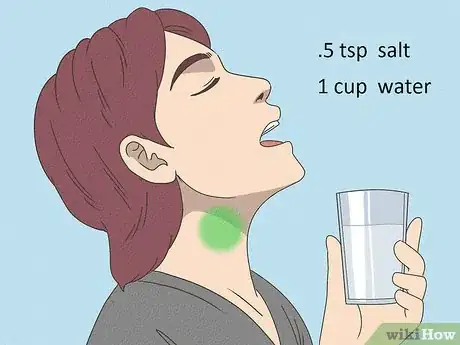


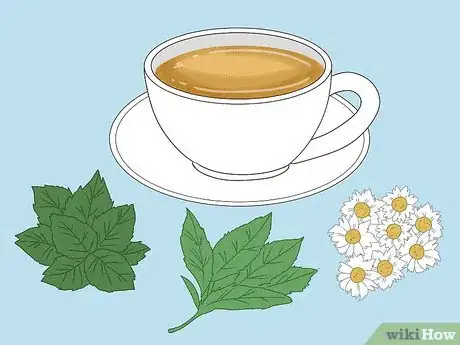
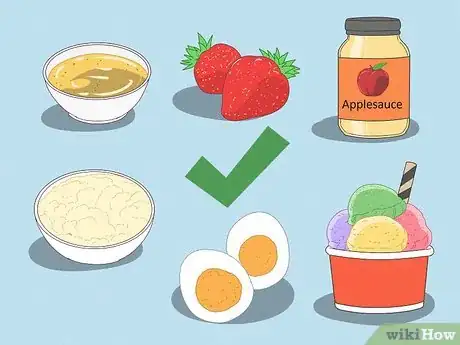
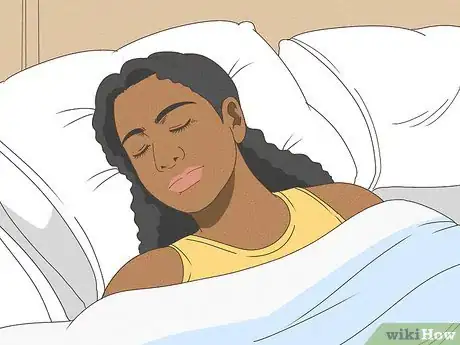
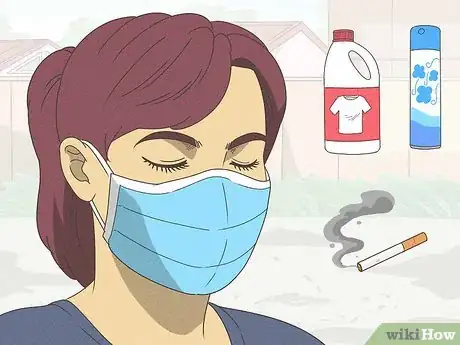
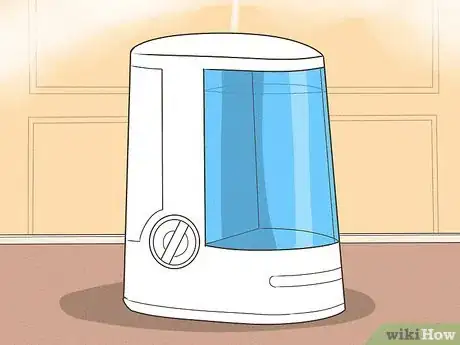

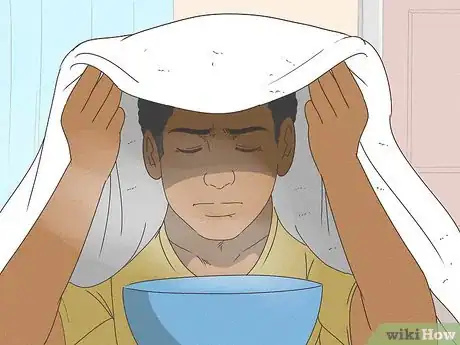

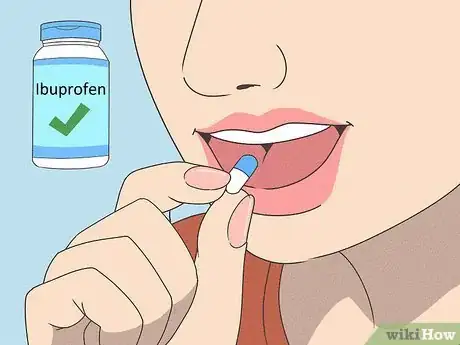
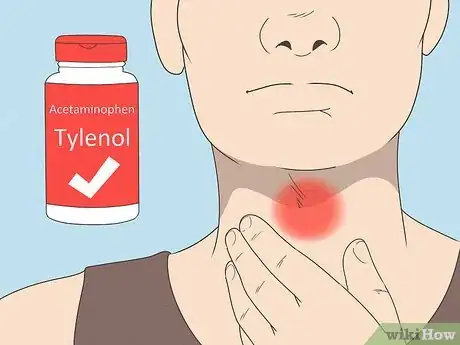
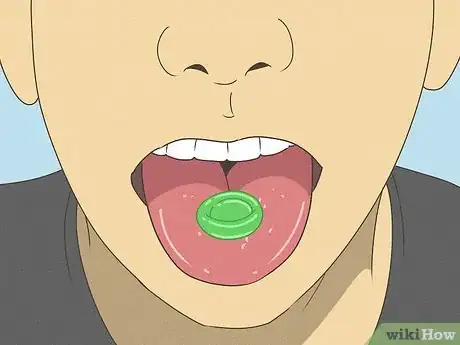
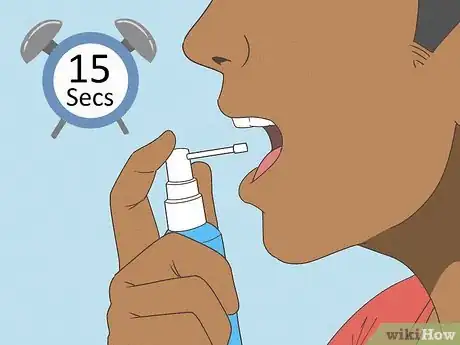
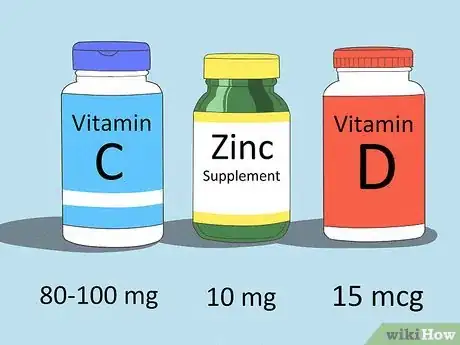
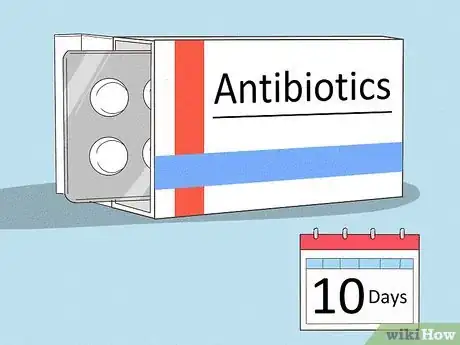
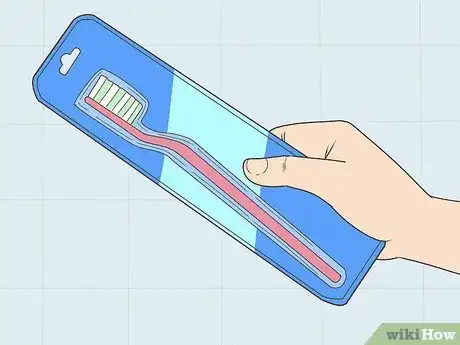
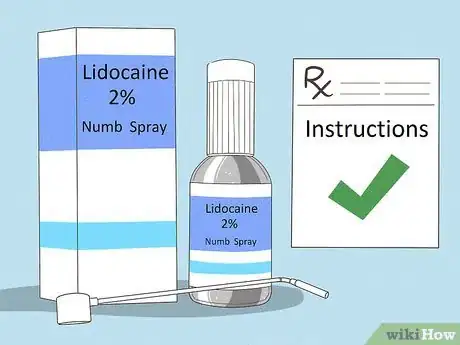
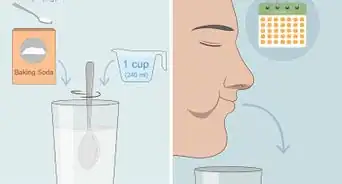
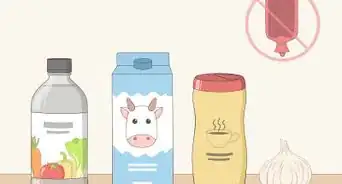
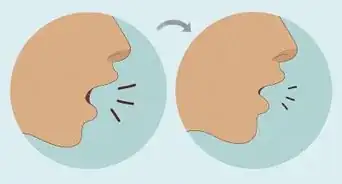
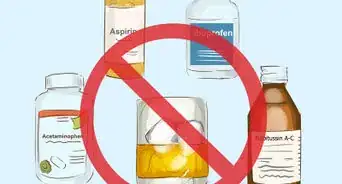






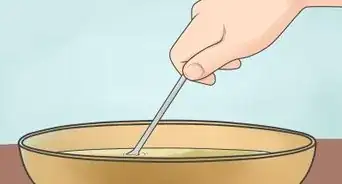
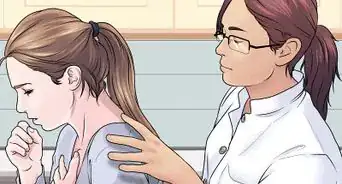











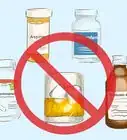



































Medical Disclaimer
The content of this article is not intended to be a substitute for professional medical advice, examination, diagnosis, or treatment. You should always contact your doctor or other qualified healthcare professional before starting, changing, or stopping any kind of health treatment.
Read More...